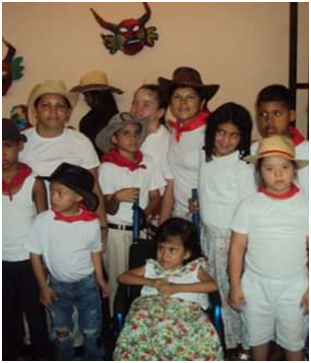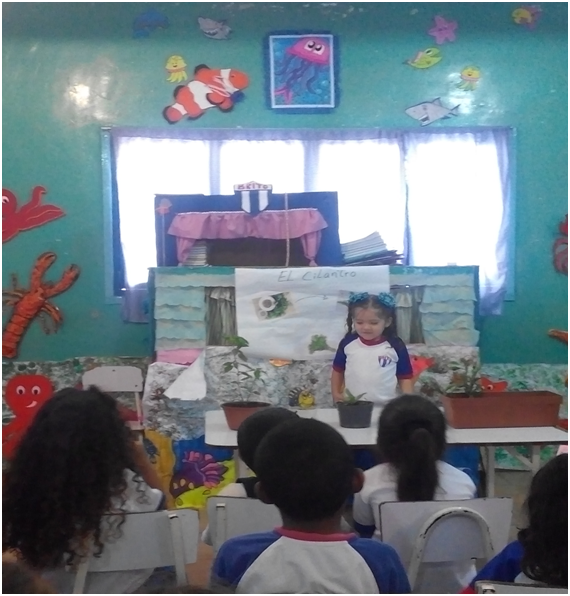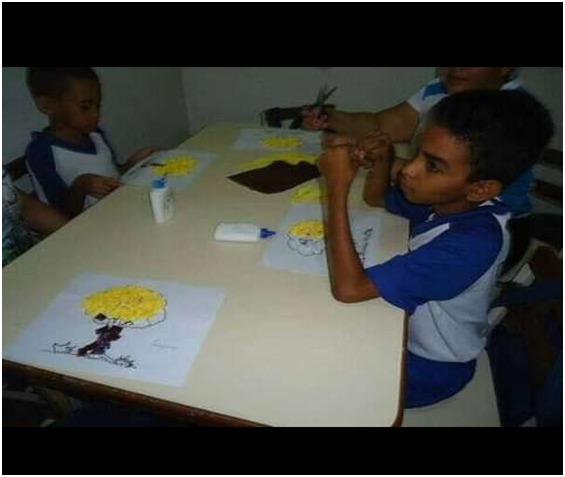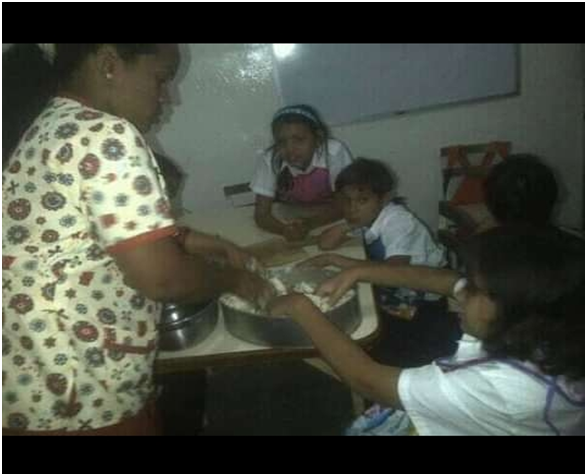¿CÓMO DIFERENCIAR EN EL AULA A UN NIÑO REGULAR DE UN NIÑO ESPECIAL?/ HOW TO DIFFERENTIATE A REGULAR CHILD FROM A SPECIAL CHILD IN THE CLASSROOM?

Hola amigos, espero se encuentren bien. Hoy, vengo a hablarle sobre la diferencia de un niño regular a un niño especial en un aula de clases, esto con mis años de experiencia y mi título como Docente especialista de educación especial, mención retardo mental.
Primero que todo debemos saber y estar claro que ningún docente de aula regular está capacitado para etiquetar a cualquier estudiante, diciendo o mencionando que dicho escolar es especial por cualquier cosa, debemos tener presente que cualquier discapacidad debe ser diagnosticada por un médico especialista, los docente SI podemos decir que algún niño IMPRESIONA con alguna condición, y seguido de esto, especificar las característica del por qué impresiona con la misma.
Hello friends, I hope you are well. Today, I come to talk to you about the difference between a regular child and a special child in a classroom, this with my years of experience and my title as a special education teacher, mention mental retardation.
First of all we must know and be clear that no regular classroom teacher is qualified to label any student, saying or mentioning that said school child is special for anything, we must keep in mind that any disability must be diagnosed by a medical specialist, we teachers CAN say that some child IMPRESSES with some condition, and followed by this, specify the characteristics of why he/she impresses with the same.
Ejemplo #1:
El niño fulano: es un niño hiperactivo, por eso es especial, debe asistir a un psicólogo y a una escuela especial (FORMA INCORRECTA)
Ejemplo #2:
El estudiante fulano: impresiona con una hiperactividad y problemas de atención debido a que carece de poder estar sentado y atento en cada una de las actividades expuestas, aunado a ello, carece de falta de concentración puesto que se entretiene con cualquier objeto que en su momento este presente, se sugiere acudir y ser evaluado por un psicólogo infantil y por una psicopedagoga (FORMA CORRECTA)
Example #1:
The child so-and-so: is a hyperactive child, that's why he is special, he should attend a psychologist and a special school (WRONG FORM).
Example #2:
The student so-and-so: impresses with hyperactivity and attention problems because he lacks the ability to be seated and attentive in each of the activities exposed, in addition to this, he lacks lack of concentration since he entertains himself with any object that is present at the time, it is suggested to attend and be evaluated by a child psychologist and a psychopedagogist (CORRECT WAY).

Se debe conocer la diferencia entre CONDICIÓN y ENFERMEDAD, durante mi carrera y mis años de experiencia que ya este año primeramente Dios cumplo 14, he oído a muchos docentes verbalizar la palabra ENFERMO, afirmándolo en oraciones tales como: “fulano, es enfermo, ese no entiende nada y siempre anda como perdido”, es por ello que siempre hago énfasis en que NO debemos caer en la ignorancia; una CONDICIÓN, es aquello con lo que se nace, se crece, se desarrolla y se muere, es de por vida, por ejemplo un niño con la Condición de Síndrome de Down nació así, crecerá así y morirá así, por más que se tome una pastilla o un jarabe para su condición siempre la va a tener; una ENFERMEDAD, es la alteración de algo en el organismo, por ejemplo, una persona que le de fiebre por causa de una infección, al tomarse el tratamiento adecuado esta finaliza, al contrario de condición.
You must know the difference between CONDITION and ILLNESS, during my career and my years of experience that already this year first God I turn 14, I have heard many teachers verbalize the word SICK, affirming it in sentences such as: "so-and-so, is sick, that one does not understand anything and always walks like lost", that is why I always emphasize that we should NOT fall into ignorance; a CONDITION, is that with which one is born, grows, develops and dies, it is for life, for example a child with Down Syndrome Condition was born like that, will grow like that and will die like that, no matter how much he takes a pill or a syrup for his condition he is always going to have it; A DISEASE is the alteration of something in the organism, for example, a person who has a fever due to an infection, when the appropriate treatment is taken, it ends, contrary to the condition.
¿QUÉ ACCIONES DEBEMOS TOMAR COMO DOCENTES?
- Primero que nada debemos llevar un registro para saber qué actividades realizó y que actividades no realizó: esto, con la finalidad de saber si las actividades no realizadas eran de su interés, esto pasa de manera muy constante, mucho de los estudiantes puede que ya se sepan la actividad o contenido que están haciendo, y este, al ser tan repetitiva llega un momento que lo aburre y fatiga, es por ello que no le toma importancia realizarlas.
- Seguido de ello, como docentes estamos en el deber de comunicarnos con los padres, preguntarles cuál es el comportamiento de este estudiante en casa, si en el presente existe algún problema familiar o si en el momento del parto hubo alguna complicación (esto último es de suma importancia, puesto que de ser afirmativo pudiésemos estar hablando de una condición a nivel neurológica).
- De tener una respuesta positiva por parte del psicólogo infantil o de la psicopedagoga: empezar a trabajar en conjunto para su avance pedagógico, cabe resaltar que este trabajo en equipo va de la mano siempre y cuando la condición del estudiante no sea a nivel cognitivo, es decir, que no tenga retardo mental, de tener dicha condición su educación debe ser especializada y debe asistir a una escuela especial dependiendo de la edad.
- De ser diagnosticado solamente un retraso pedagógico, se debe trabajar con las adaptaciones a nivel curricular en cada una de las actividades asignadas.
WHAT ACTIONS SHOULD WE TAKE AS TEACHERS?
- First of all we must keep a record to know what activities were performed and what activities were not performed: this, in order to know if the activities not performed were of interest, this happens very constantly, many students may already know the activity or content they are doing, and this, being so repetitive comes a time that bores and fatigues, which is why it does not take importance to perform them.
- Following this, as teachers we have the duty to communicate with the parents, ask them what is the behavior of this student at home, if at present there is any family problem or if at the time of delivery there was any complication (the latter is of utmost importance, since if so, we could be talking about a neurological condition).
- If there is a positive answer from the child psychologist or the psychopedagogist: start working together for their pedagogical progress, it should be noted that this teamwork goes hand in hand as long as the student's condition is not at a cognitive level, i.e., they do not have mental retardation, if they have this condition, their education should be specialized and they should attend a special school depending on their age.
- If only a pedagogical delay is diagnosed, the student must work with curricular adaptations in each of the assigned activities.


¿QUE TIPO DE DISCAPACIDAD SE PUEDE ATENDER EN UNA ESCUELA REGULAR?
Realmente todas las discapacidades, excepto las que SEAN A NIVEL COGNITIVO, legalmente hablando, están plasmado en La Constitución del País y en la Ley Orgánica para la Educación, que es un derecho de los niños con Necesidades Educativas Especiales y un deber de cada docente realizar adaptaciones en currículos y en la infraestructura (de ser necesario) para garantizar la prosecución escolar de cada estudiante, ¿Cómo se hace eso? ¡Fácil!, acá le dejo un ejemplo:
(Caso hipotético): No le pueden negar el derecho de la educación a un estudiante ciego, solo se le debe hacer sus adaptaciones pertinentes, muchas de estas se las realizará el equipo especializado para ser el apoyo del docente de aula: una de las adaptaciones sería:
“APRENDIENDO LAS VOCALES” la mayoría de los niños le asignarán el coloreo de las mismas, recorte de las vocales, reproducción de ellas, (todo depende de lo que la docente sugiera), la adaptación a este niño ciego sería: el reconocimiento de la vocales en relieve y reconocimiento de las vocales en BRAILLE (que no es más que el sistema de lectura y escritura táctil para personas ciegas), como verán, se trabajará el mismo contenido pero con adaptación a su condición.
WHAT TYPE OF DISABILITY CAN BE ATTENDED IN A REGULAR SCHOOL?
Actually all disabilities, except those that are at a cognitive level, legally speaking, are embodied in the Constitution of the country and in the Organic Law for Education, which is a right of children with Special Educational Needs and a duty of each teacher to make adaptations in curricula and infrastructure (if necessary) to ensure the continuation of school for each student, how do you do that? Easy, here is an example:
(Hypothetical case): You can not deny the right to education to a blind student, you should only make the appropriate adaptations, many of these will be made by the specialized team to be the support of the classroom teacher: one of the adaptations would be:
"LEARNING THE VOWELS" most of the children will be assigned the coloring of the vowels, cutting out the vowels, reproduction of them, (everything depends on what the teacher suggests), the adaptation to this blind child would be: the recognition of the vowels in relief and recognition of the vowels in BRAILLE (which is nothing more than the tactile reading and writing system for blind people), as you will see, the same content will be worked but with adaptation to their condition.

Congratulations @hexagono6! You have completed the following achievement on the Hive blockchain and have been rewarded with new badge(s) :
Your next target is to reach 800 upvotes.
You can view your badges on your board and compare yourself to others in the Ranking
If you no longer want to receive notifications, reply to this comment with the word
STOPSupport the HiveBuzz project. Vote for our proposal!
Excelente post! eres la maestra que nuestros niños especiales necesitan: una que observa, identifica, aprecia y comunica para encaminar a la familia hacia un diagnóstico. Felicidades